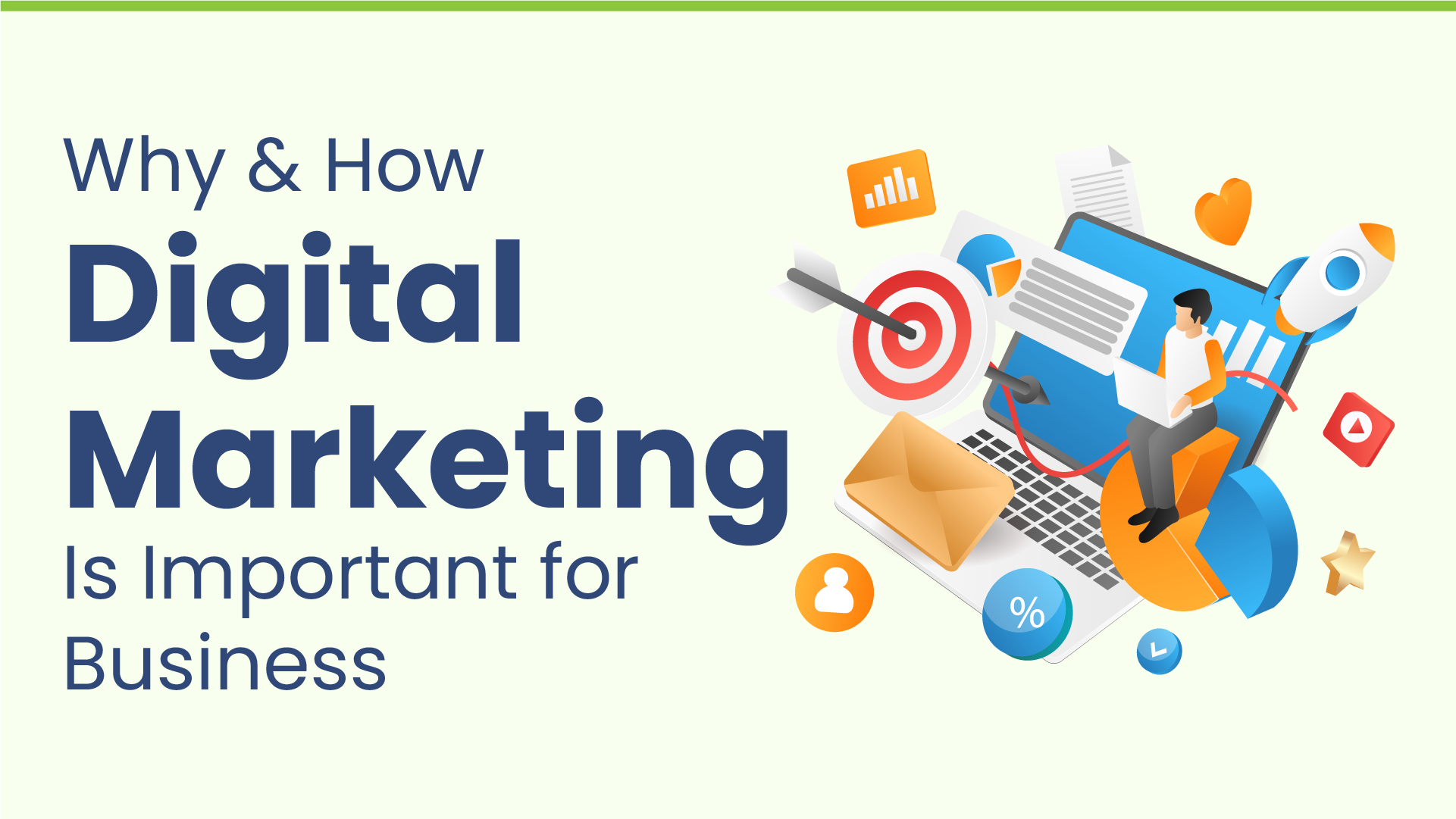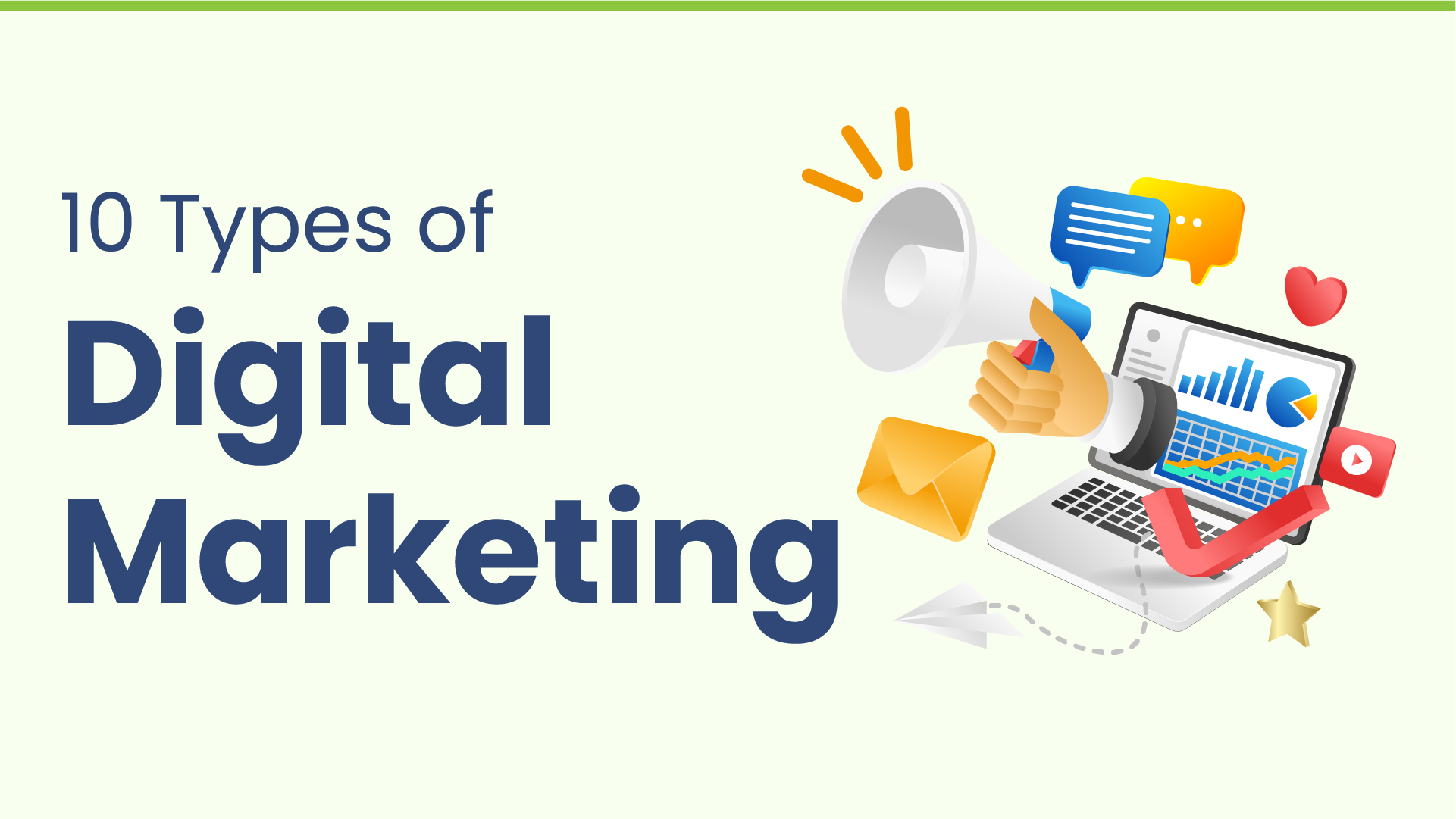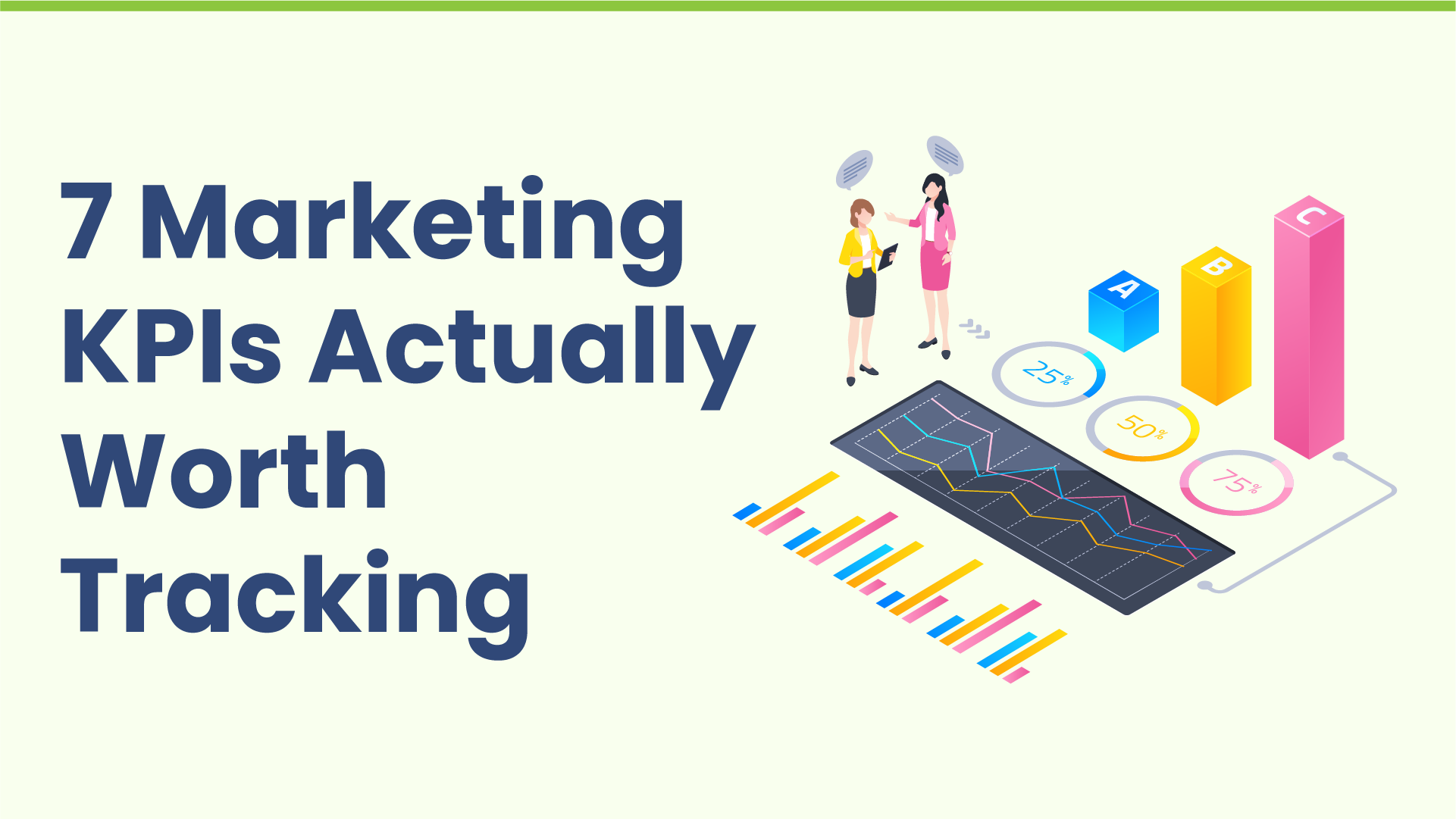
Digital marketing: what is it?
The use of internet platforms, resources, and tactics to advertise goods and services is known as digital marketing. Compared to traditional marketing, it offers a more individualized and quantifiable strategy by connecting companies with their target audience via the internet and digital gadgets.
Digital marketing enables companies to interact with their customers at every point of the buyer’s journey, from social media and search engines to email and smartphone apps. It’s a crucial component of contemporary corporate expansion, allowing organizations to boost traffic, build brand awareness, and provide quantifiable outcomes.
What role does digital marketing play?
Promoting companies, services, or goods online with gadgets like smartphones, tablets, and PCs is known as digital marketing. It encompasses tactics like influencer marketing, social media marketing, SEO, and content marketing that are all meant to draw in online audiences.
Cost-effectiveness and worldwide reach have been the driving forces behind the transition from traditional marketing to digital techniques. By utilizing platforms such as social media, email, and search engines, digital marketing allows companies to establish connections with clients worldwide. Digital marketing, in contrast to traditional marketing, maximizes campaign efficacy by providing tailored, focused messaging.
Customers are spending more time online; therefore, having a solid online presence is crucial. Companies may improve brand recognition and boost customer engagement by using digital marketing methods to target consumers at various phases of the sales funnel. Real-time performance metrics are another benefit of digital marketing that enables companies to improve their tactics.
Businesses may be at a disadvantage if they ignore digital marketing in the current digital world. Investing in a strong digital marketing strategy is essential for long-term success and growth. But before we explain what digital marketing is and why it matters, let’s take a look at some statistics that demonstrate how it has revolutionized marketing.
- 5.22 billion individuals, or 63.8% of the global population, utilize social media as of October 2024. Compared to the previous year, when 256 million new people joined social media, this represents an increase.
- According to a Global World Index analysis, users use social media for an average of two hours and nineteen minutes every day.
- Social media is used by 98% of salespeople to reach their goals.
- 51% of consumers use their mobile devices to identify brands and products that are available in the market.
- As of October 2024, over 5.52 billion people, or 67.5% of the global population, were internet users.
The new “normal” of marketing is digital marketing. Reaching out to potential customers and maintaining relationships with current ones are two of the most unique and successful strategies to build brand awareness.
Now that we have a clear understanding of what digital marketing is, let’s examine its significance in 2025.
Digital Marketing Types
A variety of techniques for interacting with your audience online are included in digital marketing. Businesses can more successfully reach potential clients by using a variety of channels and tools than they might with conventional marketing techniques. Building a strong online presence and promoting development requires an awareness of the various forms of digital marketing, whether through email campaigns, social media, or search engines.
- Search Engine Optimization (SEO): Optimizing your website to rank better in search engine results and generate organic traffic is known as search engine optimization, or SEO.
- Pay-Per-Click (PPC): This type of sponsored advertising involves companies paying each time a user clicks on their advertisement.
- Social Media Marketing (SMM): SMM is the practice of interacting with your audience and promoting your business using social media platforms such as Facebook, Instagram, and Twitter.
- Content Marketing: Producing worthwhile, pertinent material to draw in and involve your target audience is known as content marketing.
- Email Marketing: Sending subscribers customized messages in an attempt to generate leads and increase conversions is known as email marketing.
- Influencer/Affiliate Marketing: Collaborating with affiliates or influencers to market products to a larger audience is known as influencer/affiliate marketing.
- Viral Marketing: Viral marketing is the process of producing material that quickly gains traction on social media, frequently with the aim of immediately reaching a large audience.
- Mobile Marketing: Using SMS, apps, or mobile-friendly websites to target clients on their mobile devices is known as mobile marketing.
- Native Advertising: Native advertising is the term for advertisements that complement the content and add value without detracting from the user experience.
- Marketing Automation: Increasing productivity via the use of software to automate repetitive tasks, such as email marketing and social media postings, is known as marketing automation.
The importance of digital marketing in 2025 is justified by the following:
1. Increased Reach
People all throughout the world spend a lot of time online these days, looking for goods and services similar to yours. By ensuring that the correct individuals are reached at the right moment, digital marketing may assist firms in reaching this large audience.
Businesses should begin with an engaging online presence, such as an easily navigable website or store, in order to optimize reach. Brands can target local, national, and international audiences by using techniques like Pay Per Click Marketing, Social Media Marketing, Search Engine Optimization, and Content Marketing. When combined, these tactics strengthen an online presence and increase audience engagement, highlighting the significance of digital marketing in the current competitive environment.
2. Greater Recognition of Small Businesses’ Brands
Digital marketing is a powerful tool for small businesses trying to stand out in a competitive market. While large organizations use it to maintain their dominance, small businesses use it to gain traction and increase brand recognition.
Small businesses may interact with a larger audience with affordable tactics like email advertising, social media marketing, and SEO, which build reputation and trust. Small firms can effectively compete and establish a strong internet presence with persistent work, raising awareness even among more established rivals.
3. Take Your Company Global
Businesses may reach audiences around the world with the help of digital marketing. Businesses may reach a wider audience and establish connections with clients worldwide by utilizing tactics like SEO, social media, and region-specific promotions.
Businesses may target certain locations, produce multilingual material, and customize campaigns to satisfy a range of client needs thanks to the adaptability and developing technologies of digital marketing. This makes it possible for brands to grow internationally and build a strong worldwide presence.
4. Excellent ROI (return on investment)
By effectively boosting revenue and expansion for companies, digital marketing provides a high return on investment (ROI). Businesses are better able to assess the effectiveness of their campaigns when they can monitor metrics like sessions, bounce rates, and conversion rates.
For instance, it has been demonstrated that SEO produces a larger return on investment (ROI) than other tactics like social media campaigns, PPC, and email marketing, with organic traffic resulting in a 40% increase in revenue growth. Businesses may make sure their marketing investments yield substantial returns by concentrating on the most efficient channels and consistently refining their tactics.
5. Quick and Economical Techniques
Compared to traditional marketing strategies, which may need significant investments in billboards, print advertisements, and marketing personnel, digital marketing is a far more affordable option. Businesses may use digital marketing to produce quality leads by investing in a few key tools, many of which have reasonable subscription costs, and some even provide free options.
With less money and quicker results, digital marketing gives small businesses access to a worldwide audience. Businesses can target particular segments and execute campaigns with low costs while obtaining a higher return on investment by creating customized marketing strategies for various consumer groups. An ideal plan for long-term success can be developed by fusing digital marketing with conventional techniques.
6. Focus on the Right Audiences
The priceless chance to precisely target your company’s ideal audience is provided by digital marketing. Businesses can customize their campaigns to match the unique requirements and preferences of their target market by examining audience behavior online. Advanced audience segmentation based on demographics, interests, and behaviors is made possible by platforms like as social media and Google Ads. By focusing your efforts on the people who are most likely to convert, this tailored approach increases traffic, enhances engagement, and produces better campaign results.
7. Communicate with Mobile Clients
Since the majority of consumers in today’s mobile-first world are always connected via laptops and smartphones, it is imperative that businesses interact with mobile users. Websites are now made to be easily accessible on mobile devices, offering a smooth user experience, in response to Google’s mobile-first update.
Purchases are more likely to be made by mobile users as their numbers increase. Businesses may engage clients on the go, forge closer bonds with them, and increase conversion rates by developing mobile-optimized content, implementing SMS marketing campaigns, and providing timely mobile promotions.
8. Establish Robust Customer Connections & Brand Image
Numerous tactics are available in digital marketing to cultivate solid client relationships and establish a trustworthy brand. Businesses can directly interact with their audience and address client problem points by using chatbots, webinars, podcasts, and content development. By helping visitors who may depart without making a purchase, chatbots, for instance, enhance the user experience and guarantee ongoing engagement.
Long-term success requires a solid brand reputation. Businesses can develop trust and loyalty and establish themselves as dependable in the market by providing value and communicating openly. In order to maintain and expand in a cutthroat industry, digital marketing is essential for fortifying these connections and boosting brand reputation.
9. Measurable Outcomes and Performance Monitoring
The capacity to monitor and assess campaign performance using a range of tools is a major benefit of digital marketing. Platforms that offer useful information on website traffic, consumer behavior, and campaign efficacy include Google Analytics, Google Search Console, and Ads Manager. By keeping an eye on important indicators like ROI and conversion rates, these tools assist companies in making sure their tactics are in line with their objectives.
Businesses can also make better judgments by using tools like Screaming Frog, Ahrefs, and SEMrush, which provide deeper insights into rival activity. Quick adjustments are made possible by real-time tracking, guaranteeing that marketing initiatives are maximized for better outcomes and more profits.
10. Keep Up with the Competition
Since many companies are already using digital marketing to obtain an advantage, it is crucial to keep ahead of the competition. Competitors consistently provide evergreen content that generates both organic and paid traffic, keep up active social media accounts, and build attractive websites.
Businesses may increase their reach, draw in new customers, and strengthen their position in the market by putting digital marketing techniques into practice. Businesses may maintain their competitiveness and relevance in the rapidly evolving digital market by regularly observing the actions of their competitors and modifying their strategy accordingly.
11. Face Off Against Big Companies
Digital marketing gives small businesses the ability to compete with large corporations by utilizing strategies like SEO, PPC, and social media marketing. A crucial component of this is competitor analysis, which aids companies in staying up with rapidly expanding companies like Amazon, Walmart, and Myntra.
Businesses of all sizes may accomplish their objectives and reach a wide audience by putting into practice a multichannel marketing strategy that combines PPC, SEO, and social media. By leveling the playing field, this tactic enables smaller companies to successfully compete and establish their brands alongside larger ones.
12. Easily Scale Campaigns
The ability to scale campaigns based on a company’s size, objectives, and financial constraints is provided by digital marketing. Platforms like social media and Google Ads let you begin with a tiny budget and scale your efforts as you see results, regardless of business size.
Because of its scalability, companies can easily modify their campaigns and reach a wider audience without having to incur a significant initial cost. Digital marketing makes sure that campaigns can expand with your company, enabling you to scale successfully and efficiently, with real-time improvements and automated solutions.
13. Increase Traffic by Using Various Channels
Digital marketing provides a variety of ways to increase website traffic that may be customized to meet your company’s objectives. Businesses can access a variety of traffic sources by implementing social media campaigns, PPC, SEO, and content marketing.
Every channel has a distinct function in raising awareness and engagement: PPC generates targeted traffic, content marketing builds authority, social media campaigns encourage community participation, and SEO enhances organic reach. Combining these tactics guarantees optimal reach and increases the likelihood of attracting targeted visitors to your website, which will increase conversions and propel your company forward.
Questions and Answers (FAQs)
1. In what ways can digital marketing aid in business promotion?
Digital marketing is now crucial if you want your brand to succeed. Through a variety of internet platforms, including YouTube, websites, and social media, it aims to provide leads. Through the use of webinars, chatbots to answer questions, and interesting material, it helps to improve ties with the client.
2. How important is digital marketing to students and working professionals?
All throughout the world, digital marketing is growing in popularity. It provides a multitude of options for professional growth and learning. Digital marketing is emphasized in these rules.
- A job in digital marketing offers job stability.
- You should have little trouble finding a position with a good income because there is a large need for digital marketing specialists, and there is less competition.
- Since online marketing changes with time, starting now will help you be ready for what lies ahead.
- You may be able to move into entrepreneurial roles more easily if you develop your online marketing abilities.
- It allows you to remain up to date with market developments.
3. Is digital marketing necessary for small businesses?
Small businesses usually lack the funds necessary to invest in many new office setups. The best approach to reach potential customers in new local and foreign markets in such a scenario is through digital marketing. It may aid in raising the brand’s visibility, sales, income, and internet presence.
4. How is the growth of digital marketing?
These days, almost every business recognizes the importance of digital marketing. It is expanding significantly and more quickly than anticipated as an industry. In developing nations like China and India, there has been significant expansion. According to the EMR analyst’s analysis, digital marketing in India grew by 32.1% in 2022. Additionally, it predicted that by 2028, the market may be worth USD 24.1 billion. The majority of this increase has occurred in the telecom, goods, and automobile sectors. Businesses in these sectors made significant investments because they recognized the value of digital marketing.
5. What’s Driving the Growth of Digital Marketing?
The significance of digital marketing is increasing daily. These days, a lot of digital advertisements from various firms are present in the information you view on your phones, desktops, or tablets. Digital campaigns operate on every well-known internet site, from a Google search to an Instagram promotional post. This is due to the fact that many audiences are now able to stay online and explore social media and the internet in general for longer periods of time than previously possible, thanks to reasonably priced data plans. This has led to a rise in the production and technological advancement of digital devices. Businesses are making large investments to boost their online presence after realizing the value of digital marketing. This explains why digital marketing has grown at an exponential rate globally in recent years.
6. What part does SEO play in online advertising?
SEO is one of digital marketing’s most important elements. By assisting companies in improving their search engine rankings and generating organic traffic, it increases online visibility. SEO improves user experience, establishes credibility, and increases brand authority by optimizing content, keywords, and site structure. It enables companies to outperform rivals, reach a wider audience, and boost conversions.



